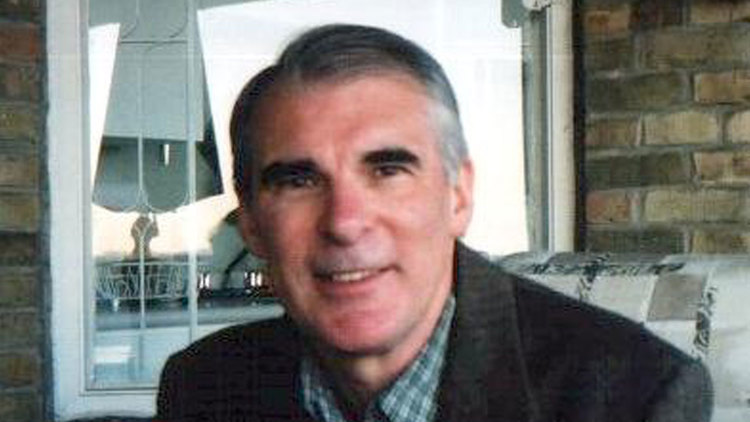
By Steve Sailer
10/04/2012
A short biography of J.P. Rushton, who, I am told, died yesterday of Addison’s disease:
J. Philippe Rushton, B.Sc., Ph.D., D.Sc., F.B.Ps.S., the fourth and current president of the Pioneer Fund, was born in 1943 in Bournemouth, England. He received all his degrees from the University of London, including a Ph.D. in social psychology from the London School of Economics and Political Science. He is the author of 5 books and over 200 scholarly articles published in peer-reviewed journals.
Rushton is a Fellow of the John Simon Guggenheim Memorial Foundation, the American Association for the Advancement of Science, and the American, British, and Canadian Psychological Associations. He is also a member of the Behavioral Genetics Association and the Society for Neuroscience.
Rushton has summarized his research for journals of opinion such as Liberty, the National Review, and the Washington Times’sInsight on the News, and discussed it on TV talk shows such as Donahue, Geraldo Live, and Connie Chung. His major published work is Race, Evolution, and Behavior, which was favorably reviewed in The New York Times Book Review of October 16, 1994, translated into Japanese, and is now in its 3rd unabridged edition, as well as in an abridged edition and an audio book.
Professor Rushton began his career by researching the basis of altruism. The question of why one individual aids another, thereby exposing himself to risk, has long posed a challenge to evolutionary theories of human development. Rushton’s early work focused on the social learning of generosity in 7- to 11-year-old children. After writing a book, Altruism, Socialization, and Society (1980), which examined the influence of the family, the educational system, and the mass media, he broadened his perspective to include sociobiological and behavioral genetic factors. He then analyzed the University of London Twin Register and found that individual differences in empathy and nurturance are about 50% heritable, as were individual differences in aggression and crime, some of which he found to be mediated by testosterone.
Studying behavioral genetics and sociobiology led Rushton to explore the dilemma of why, throughout the natural world, “birds of a feather flock together.” He found that genes incline people to marry, befriend, associate with, and help others like themselves. Typically, individuals learn to identify and prefer their own ethnic group, rather than others, for largely genetic reasons. Rushton’s Genetic Similarity Theory expanded the kin-selection theory of altruism (a fundamental theorem of sociobiology) to explain why the pull of that factor is so powerful across human relationships and how it provides an explanation for ethnocentrism and ethnic competition. Altruism follows lines of genetic similarity in order to replicate genes more effectively; xenophobia emerges as the dark side of human altruism.It also led Rushton to examine race differences. In new studies and reviews of the world literature, he has documented that East Asians and their descendants consistently average a larger brain size, greater intelligence, more sexual restraint, a slower rate of maturation, and greater levels of law abidingness and social organization than do Europeans and their descendants. Europeans, in turn, average higher on these dimensions than do Africans and their descendants. To explain this pattern he proposed a gene-based evolutionary theory in his book, Race, Evolution, and Behavior (1995).
Here’s Rushton’s C.V. with links to most of his papers.
Here’s an abridged version of Rushton’s Race, Evolution, and Behavioronline.
Here’s a short 2003 VDARE article I wrote on Rushton’s rule of three on East Asians — whites — blacks.
Here’s a 107 minute debate in 1989 on Canadian TV between Rushton and geneticist David Suzuki.
A conversation with J Philippe Rushton
Hur on Rushton’s contribution to the study of altruism
Meanwhile, Communist historian Eric Hobsbawm has died at age 95, loaded with honors from people his Party would have sent to the Gulag. From Wikipedia’s article on Hobsbawm, who didn’t resign from the Communist Party until the late 1980s:
1973: Honorary Fellow, King’s College, Cambridge
1978: Fellow of the British Academy
1995: Deutscher Memorial Prize; Lionel Gelber Prize
1996: Wolfson History Oeuvre Prize
1998: Companion of Honour, Order of the Companions of Honour
1999: Buchpreis zur Europäischen Verständigung Leipziger Buchpreis zur Europäischen Verständigung (Hauptpreis)
1999: Honorary degree from Universidad de la República Montevideo, Uruguay
2000: Ernst Bloch Prize
2003: Balzan Prize recipient
2006: Fellow of the Royal Society of Literature[60]
2008: Honorary citizenship from Vienna
2008: Honorary degree from University of Vienna
2008: Honorary degree from Charles University in Prague
2008: Bochum History Prize
Had Eric Hobsbawm adopted the theories of Gobineau and H.S. Chamberlain, rather than those of Marx and Engels, he would have been left to theorise in pubs …In contrast to Hobsbawm, Rushton innovated a remarkably large number of the more interesting and/or useful ideas in the human sciences of the era, and had to undergo, for his accomplishments, a lengthy police investigation.
This is a content archive of VDARE.com, which Letitia James forced off of the Internet using lawfare.